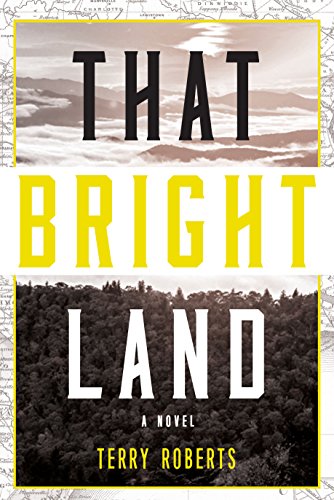That Bright Land
In the mountains and small towns of western North Carolina in 1866, returning soldiers from both sides have settled into uneasy peace—but, for some, the Civil War isn’t over. Someone is killing Union veterans. To avoid insurrection, the governor sends Jacob Ballard, 24, a former Union soldier/spy, to Warm Springs, NC, where, disguised as a federal pension examiner, he’s to stop the murders.
Born in North Carolina but raised elsewhere, Ballard has lost his Southern accent. Union veterans meet with the “federal examiner” to discuss pensions but, when they keep talking, it’s about hate, revenge, and disloyalty, which leads back to an execution of Union loyalists by Confederate soldiers—but nothing about the recent murders.
Ballard makes allies among those who recognize his decency, including a young widow and her son. Sometimes, when the couple walks the land together, the terrain looks familiar, and Jacob remembers what was good about this place. If he understood why the locals are still angry, he might understand the killer and discover his name, but Jacob has secrets too. He will have to risk everything good he’s found in the mountains of North Carolina to prevent the spread of one man’s vendetta.
The plot is original and, with minor exceptions, the characters in Roberts’ second novel (after A Short Time to Stay Here, 2015) are convincing—but the setting steals the show. Ballard’s struggle for identity parallels that of the remote, mountainous region of North Carolina, which will complicate his future. That Bright Land deserves an A for the sympathetic protagonist, intelligent love story, and well-crafted plot, but Ballard’s discovery of his own roots, after years of homelessness and war, makes it an A+. Highly recommended.










